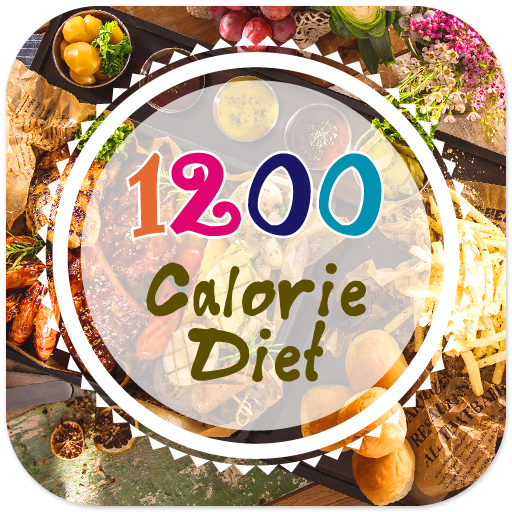
Low in calories and high in fiber, bananas are great foods to eat at nights for weight loss. Bananas are high in potassium and tryptophan which are known appetite suppressants. Bananas go well with fruits like cherries and cottage cheese. Avocados are the best choice for low-calorie meals that are high in fiber.
Cherries
Cherries are high in antioxidants and low calories. They can be enjoyed with milk or Greek Yogurt for a healthy late-night snack. Green tea is a popular snack option. Its caffeine-free nature may help you to sleep better. Raspberries also contain high levels of fiber and antioxidants. They make an excellent late-night snack.
Oatmeal
A high-carb meal will keep your blood sugars unstable and lead to poor sleep. Stabilizing blood sugar levels will be possible with a nutritious meal rich of protein, nuts, and other seeds. Oats are a satisfying snack that is low in calories and can be enjoyed late at night. Oats are also high in fiber and melatonin, which helps you sleep. Add dried fruits or raisins to a bowl full of oats for a delicious snack.
Cottage cheese
The best time of day to eat is right before bedtime, when you have more time to eat and your metabolism is at its lowest. Avoid eating late at night because it can make you gain weight. A thin banana split with Greekyog is a great way to lose weight. This food will satisfy any cravings and help you shed fat over night. You can also have cheese and crackers at the end of the day.

Pea greens
Green peas are an excellent way to lose weight as they are full of protein and fiber. You'll feel fuller longer because they are rich fiber. This will help you avoid overeating. Green peas are a great source of vegetarian protein. What are the benefits of green peas for weight loss? Here are their top benefits. Here are some ways to incorporate them into your daily diet.
Edamame
Edamame, apart from its high nutritional contents, is a great source for fiber and protein. They contain nine essential amino compounds and almost as many carbs as they do protein. They are also loaded with antioxidants and contain twice the iron in a four-ounce chicken breast. Edamame is a good choice for an evening snack.
String cheese
Consuming late-night snacks can lead to a loss of calories. Snack foods late at night are often high-fat and sugar. This can lead to weight gain, diabetes, and other health problems like heart disease and diabetes. Choose healthy snacks such as dark chocolate, tart cherries, ricotta, and air-fried popcorn. You can also have a glass chocolate milk as a midnight snack if you are too tired to eat your favourite foods at night.
Edamame can be a good source for protein
Edamame has impressive nutrition facts. Edamame has high-quality protein. It also doesn't contain added sugars, saturated fats, nor sodium. Edamame is rich in micronutrients that are essential for our bodies' metabolism and overall health. Edamame is a great option for weight loss, especially at night.
Oatmeal reduces stress
Oatmeal is a great way of reducing stress. Complex carbohydrates in oatmeal increase the release of serotonin, a hormone naturally found in the brain that aids in stress management. The oatmeal's satiation-promoting betaglucan also makes you feel fuller. Steel-cut oatmeal can be kept in the fridge or microwaved, making it ideal for busy mornings. You can have it prepared at many restaurants.

Oatmeal is an excellent source of melatonin
Oatmeal has many benefits, including helping the body produce melatonin naturally. It is high in essential nutrients, including amino acids and minerals. This helps to promote relaxation and supports a healthy nervous system. It is also a good source of fiber and a good source of melatonin, which is important for the sleep/wake cycle. Oats can be used as a breakfast alternative to corn and rice. They can also be made savory or sweet.
Bananas
Bananas make the perfect late-night snack. They are low in calories and high in fiber. You can pair them with peanut sauce or frozen berries to enjoy a satisfying snack. Bananas also contain the amino acid tryptophan, which is used by the body to make serotonin, melatonin, and dopamine. Bananas have a small amount protein. They can be eaten with one teaspoon of peanut butter and one teaspoon of milk.
FAQ
Does intermittent fasting affect my sleep?
Yes, intermittent fasting does affect your sleep. You may notice an increase in hunger hormones if you skip meals. You may wake up more often at night because of this.
Experts recommend skipping breakfast. They recommend eating a light snack before bed.
If you are still hungry after your snack, you can eat a small dinner right before you go to bed.
Don't overeat. You will end up gaining weight rather than losing it.
How long does it usually take to lose weight
It takes time and effort to lose weight. It usually takes six months for you to lose 10%.
You shouldn't expect weight loss overnight. Your body needs to adjust to new dietary habits.
This means you need to gradually alter your diet over several weeks or days.
You should also stop trying fad diets. They don't work. Instead, focus on improving your daily routine.
Consider, for instance, that you often eat unhealthy snacks late at the night. You need to reduce this behavior.
Eat healthier meals earlier in evening. This will ensure that you don't snack late at night.
Drinking water throughout the day is also important. Water helps keep your body hydrated, and prevents you from becoming dehydrated. You feel tired and slow if you are dehydrated.
It is important to drink plenty of water throughout each day to stay energized.
Finally, you should reduce stress levels by doing things that relax you. You can spend time with family members, for example.
You could also read books, watch movies or listen to music.
These activities can help you relax from stressful situations. In addition, they will improve your mood and boost your self-esteem.
So, when you're trying to lose weight, you should always think about your health first.
Your overall health can be measured by your physical fitness. If you are looking to improve your physical fitness, it is important that you eat well and do regular exercise.
How long do I need to fast for weight loss?
The answer is not as simple as you might think. There are many factors that need to be taken into consideration when deciding how many days of fasting is necessary for optimal fat loss. These are:
-
Your age. If you are younger than 40, intermittent fasting might be too difficult because you have less time for recovery after each fast. On the other hand, if you're older (over 60), you may find that you don't have enough energy to sustain an extended period of daily fasting.
-
Your current body composition. Your current body composition. If you have a lot more muscle mass than you need, then you will likely be more successful with longer fasting periods. Shorter fasting might be more appropriate for you if you have less muscle mass.
-
How active you are. You may need to increase your fasting time if you exercise often. This will ensure you get enough rest between workouts.
-
Your past health history. Extra fasting may be necessary for people who have heart disease, diabetes, cancer, or other medical conditions.
-
What is your tolerance for stress? Stress can cause us to eat more. You might need to lengthen your fasting windows in order not to have this problem.
-
It is the type of diet you are following. Certain diets, like ketogenic diets, may require even longer fasting periods.
-
The quality of your sleep. The quality of your sleep is also a factor in increased appetite and decreased metabolism. It may take some trial and error before you find the right combination.
-
The amount of protein you consume. Protein helps stabilize blood sugar levels, which means that eating more protein could potentially lead to lower insulin levels. This would allow for you to fast more often.
-
It doesn't matter if you want to gain or lose fat, those who are trying for weight gain will often require longer fasting periods.
-
What proportion of calories do your fasting hours allow you to consume? Fasting fewer calories per day may result in greater fat loss than fasting for more calories per day.
-
Your overall fitness level. People who are fit and fast burn more calories per day.
-
Your gender. Women tend to have a greater appetite than men, so they might need to fast for longer periods. Women generally have smaller appetites, so they may only need to fast for about 20-30 minutes every morning.
-
Your lifestyle. Are you someone who is active? Are you able to exercise several times per week? Does your job involve sitting at a desk all day long? All of these things can affect the amount of time you should fast.
-
What amount do you spend on food each month? You don't have to spend much on groceries to eat healthy food. Whole grains are better than white bread and whole fruits are better than candy bars. Lean meats can also be saved.
-
It's important to manage your hunger. If you don't want to skip meals, you might not need to fast as long as other people do.
Statistics
- According to a study sponsored by the American Council on Exercise, a person weighing around 140 pounds (64 kg) would burn 108 calories at a 30-minute beginner's Pilates class or 168 calories at an advanced class of the same duration (26). (healthline.com)
- Among women, the increase in metabolic rate was nearly 4%, or 50 more calories per day (14Trusted Source (healthline.com)
- According to Harvard Health, it's estimated that a 155-pound (70-kg) person burns around 167 calories per 30 minutes of walking at a moderate pace of 4 mph (6.4 km/h) (5). (healthline.com)
- Another study found that 24 weeks of weight training led to a 9% increase in metabolic rate among men, which equated to burning approximately 140 more calories per day. (healthline.com)
External Links
How To
How can I lose belly fat quickly?
You must know that losing belly fat is not easy. It takes dedication, hard work, and dedication. However, these tips will ensure you see results.
-
Healthy Food Healthy eating is crucial. You should eat fruits, vegetables, whole grain, lean protein, nuts, seeds and legumes as well as fish, poultry and eggs. Avoid junk food.
-
Drink Water. Drinking water keeps your body hydrated, making you feel full and satisfied for longer periods. Make sure you drink lots of water every day.
-
Cardio exercises. Cardio exercises help to burn more calories, build muscle mass, and improve your cardiovascular health. Cardio exercises can also increase your heart health, and speed up metabolism. Cardio exercise should be done for 30 minutes each day.
-
Get enough sleep. Healthy sleep is essential for good health. A lack of sleep can lead anxiety and stress that can then be exacerbated by unhealthy habits like smoking and drinking.
-
Stress levels can be reduced. Stress affects our brain chemistry and hormonal levels. Stress causes cortisol to be released by the body, which is a hormone that can increase hunger pangs, and cause cravings for high calorie foods.
-
Regular breaks are important. Take regular breaks throughout the day. Get out and take a stroll or a brief nap. This allows your mind and body to relax and allow you to recover.
-
Avoid Alcohol Consumption. Alcohol can cause empty calories and slow down digestion. Drinking alcohol is not a good option if you want to lose weight.
-
Have Fun